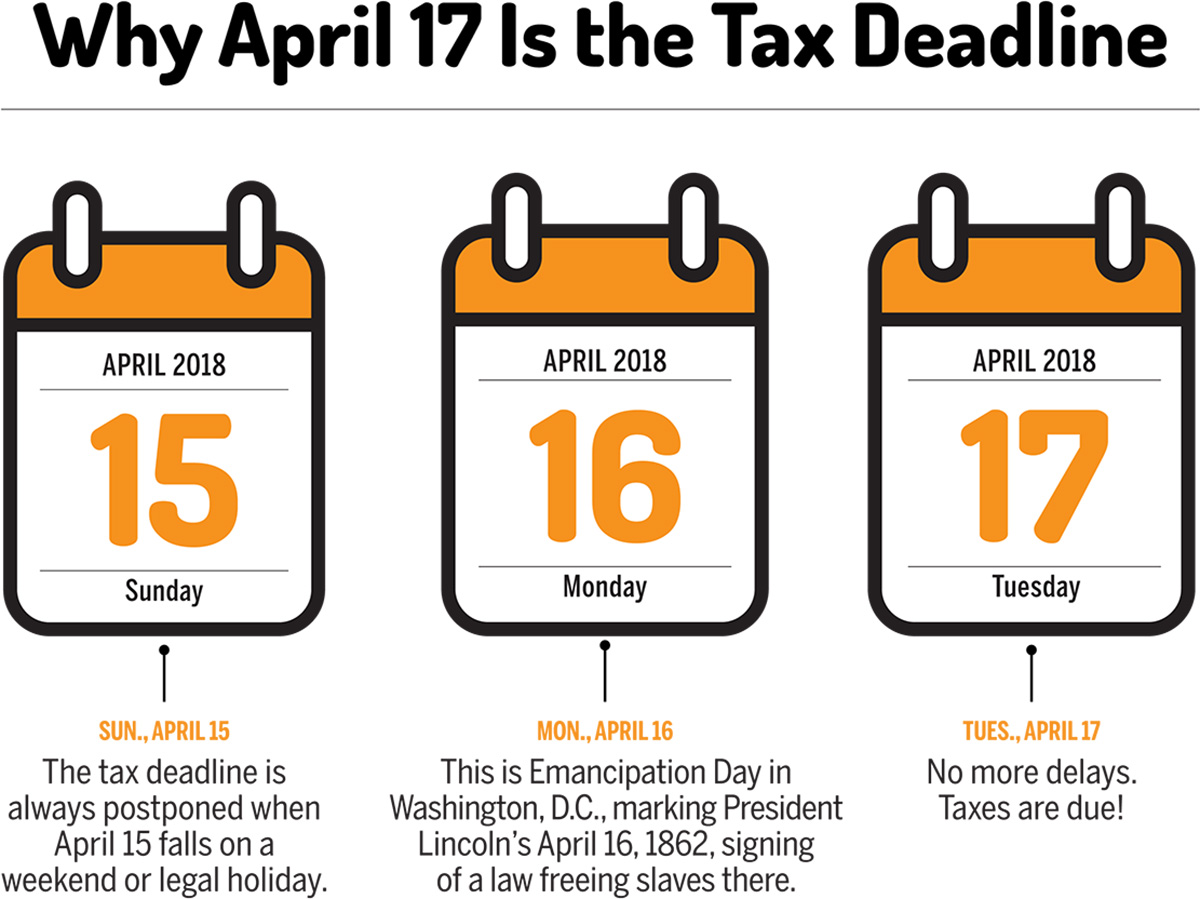

Finance
When Does A Trust Need To File A Tax Return?
Published: October 28, 2023
Find out when a trust is required to file a tax return and ensure your finances are in compliance with the law.
(Many of the links in this article redirect to a specific reviewed product. Your purchase of these products through affiliate links helps to generate commission for LiveWell, at no extra cost. Learn more)
Table of Contents
Introduction
When it comes to managing finances, trusts have long been a popular tool for individuals and families. A trust is a legal entity that allows assets to be held and managed by a trustee for the benefit of one or more beneficiaries. Trusts offer a range of benefits, including asset protection, tax planning, and estate planning.
However, along with the benefits of trusts comes the responsibility of complying with tax regulations. Just like individuals and businesses, trusts may be required to file tax returns and fulfill certain obligations with the tax authorities. Understanding when a trust needs to file a tax return is vital to avoid penalties and ensure compliance.
In this article, we will delve into the world of trust taxation and explore the circumstances in which a trust is required to file a tax return. We will also uncover the key deadlines and forms associated with trust tax returns, as well as provide some tips for navigating the complex terrain of trust tax compliance.
Whether you are a trustee or a beneficiary, having a clear understanding of trust tax requirements is crucial to effectively manage the financial aspects of a trust. So, let’s dive in and demystify the world of trust taxation!
Understanding Trusts
Before diving into the intricacies of trust taxation, it’s important to have a basic understanding of what a trust is. Simply put, a trust is a legal arrangement where assets are managed on behalf of beneficiaries by a trustee. Assets placed in a trust can include cash, real estate, investments, or other valuable possessions.
Trusts are established for various reasons, such as estate planning, asset protection, or charitable giving. They provide a level of control over how assets are distributed, allowing individuals to dictate the terms and conditions under which beneficiaries can access the assets. The terms of the trust are outlined in a legal document, known as the trust agreement or trust deed.
There are several key players involved in a trust arrangement. Let’s take a closer look at their roles:
- Grantor/Settlor: The individual or entity that creates and funds the trust. They transfer assets into the trust and define the terms and conditions of its operation.
- Trustee: The person or entity responsible for managing the trust and its assets according to the trust agreement. They have a fiduciary duty to act in the best interests of the beneficiaries.
- Beneficiaries: The individuals or entities designated to benefit from the assets held in the trust. They can be named beneficiaries or have certain conditions that need to be met before receiving distributions.
It’s important to note that trusts can be revocable or irrevocable. Revocable trusts allow the grantor to modify or terminate the trust during their lifetime, while irrevocable trusts cannot be easily altered or revoked without the consent of the beneficiaries.
Now that we have a basic understanding of trusts and their key components, let’s explore how trust taxation comes into play and when a trust is required to file a tax return.
Basic Overview of Trust Taxation
Trust taxation can be complex and varies depending on the type of trust and the jurisdiction in which it operates. However, there are some fundamental principles that apply to most trust tax situations.
Firstly, trusts are separate taxable entities, meaning they are subject to their own tax obligations and rates. The income generated by the assets held within a trust is typically subject to taxation, just like individual or corporate income.
The two main types of trust taxation are grantor trusts and non-grantor trusts. In a grantor trust, the grantor, or the person who created the trust, is considered the owner for tax purposes. The income generated by the trust is typically reported on the grantor’s personal tax return, and the trust itself does not have a separate tax filing requirement.
On the other hand, non-grantor trusts are taxed as separate entities. They are required to file their own tax returns and pay taxes on the income generated by the trust. The income tax rates for trusts can differ from individual tax rates and often have compressed tax brackets, meaning they may reach higher tax rates at lower income levels.
Trusts are also subject to the Net Investment Income Tax (NIIT), which is an additional tax of 3.8% imposed on certain types of investment income, including interest, dividends, and capital gains. The NIIT applies to trusts whose income exceeds certain thresholds.
It is essential to note that the tax treatment of trusts can also be influenced by the distribution of income to beneficiaries. In some cases, income distributed to beneficiaries is deducted from the trust’s taxable income, reducing the amount of tax owed by the trust. Conversely, income retained within the trust is subject to taxation at the trust level.
To navigate the complexities of trust taxation, it is advisable to consult with a tax professional or seek expert advice. They can offer guidance specific to your trust’s circumstances and help ensure compliance with tax regulations.
Now that we have a basic understanding of trust taxation, let’s explore the criteria that determine whether a trust needs to file a tax return.
Determining Trust Tax Filing Requirements
Determining whether a trust needs to file a tax return depends on several factors, including the type of trust, the amount of income generated, and the applicable tax laws in the jurisdiction where the trust is established. Here are some key considerations to determine trust tax filing requirements:
- Type of Trust: The first step is to identify whether the trust is a grantor trust or a non-grantor trust. As mentioned earlier, grantor trusts do not require separate tax filings, as the income is reported on the grantor’s personal tax return. Non-grantor trusts, on the other hand, are typically required to file their own tax returns.
- Income Threshold: Trusts are generally required to file a tax return if they have any taxable income exceeding a certain threshold. The specific threshold can vary depending on the jurisdiction and can change annually, so it is important to stay updated with the current regulations.
- Taxable Income Sources: The sources of income generated by the trust can also impact the tax filing requirements. Some types of income, such as interest, dividends, capital gains, and rental income, are typically subject to taxation. It is important to determine the total taxable income to assess whether it exceeds the filing threshold.
- Beneficiary Distributions: The distribution of income to beneficiaries can affect the trust’s tax filing requirements. In some cases, if the trust distributes all of its income to beneficiaries and does not retain any income, it may not be required to file a tax return. However, the specific rules surrounding distribution deductions can be complex, and professional advice may be necessary to ensure compliance.
- State Specific Requirements: In addition to federal tax obligations, trusts may also have state-level tax filing requirements. Each state has its own rules and thresholds for trust taxation, so it is crucial to understand the particular requirements of the jurisdiction where the trust is established.
It is important to note that even if a trust does not meet the criteria for mandatory tax filing, it may still be beneficial to file a tax return voluntarily. Voluntary filing can help establish a clear record of income, deductions, and distributions, and can be helpful in situations where beneficiaries may need to provide proof of income for various purposes, such as obtaining loans or applying for government benefits.
Next, we will explore the scenarios where a trust is required to file a tax return.
Trusts That Must File a Tax Return
Not all trusts are required to file a tax return, but there are certain scenarios where a trust is obligated to submit a tax return to fulfill its tax obligations. Here are some situations in which a trust must file a tax return:
- Non-Grantor Trusts: Non-grantor trusts, which are considered separate taxable entities, generally have a requirement to file a tax return. These trusts include irrevocable trusts, testamentary trusts, and certain types of charitable trusts.
- Taxable Income Threshold: Trusts must file a tax return if their taxable income exceeds the threshold set by the tax authorities. The threshold can vary depending on the jurisdiction and may change yearly.
- Distributable Net Income (DNI): Trusts must file a tax return if they have distributable net income (DNI), which is the portion of the trust’s income that is available for distribution to beneficiaries. Reporting DNI on a tax return ensures that the beneficiaries are taxed correctly based on their share of the trust’s income.
- Net Investment Income: Trusts that have net investment income exceeding certain thresholds are required to file a tax return. This includes income such as interest, dividends, capital gains, and rental income, among others. The Net Investment Income Tax (NIIT) applies to these types of income and is an additional tax imposed on certain high-income taxpayers.
- Generation-Skipping Transfer Tax: Certain types of trusts, such as generation-skipping trusts, may also be subject to specific tax requirements. These trusts are designed to pass assets to beneficiaries who are at least two generations below the grantor’s generation and can have unique tax considerations.
- State Tax Obligations: Apart from federal tax obligations, trusts may also have state-level tax filing requirements. Each state has its own rules and thresholds for trust taxation, so it is important to consider the specific requirements of the jurisdiction where the trust is established.
If a trust meets any of these criteria, it is important to ensure timely and accurate filing of the necessary tax return. Failing to comply with the tax filing requirements can result in penalties and interest charges.
In the next section, we will explore the scenarios where a trust may not need to file a tax return.
Trusts That Do Not Need to File a Tax Return
While some trusts are obligated to file a tax return, there are situations where a trust may not be required to file a tax return. Here are some scenarios in which a trust may not need to file a tax return:
- Grantor Trusts: Grantor trusts, where the grantor retains ownership and control over the trust assets, are not required to file a separate tax return. The income generated by the trust is generally reported on the grantor’s personal tax return, and the trust itself does not have a separate tax filing requirement.
- No Taxable Income: Trusts that have no taxable income during the tax year may not be required to file a tax return. If the trust did not generate any income or if the income falls below the filing threshold set by the tax authorities, filing a tax return may not be necessary.
- Distributions Exhaust Income: If a trust distributes all of its income to the beneficiaries, resulting in zero taxable income at the trust level, it may not be required to file a tax return. In this case, the beneficiaries would report the distributed income on their personal tax returns and pay the applicable taxes.
- Revocable Living Trusts: Revocable living trusts, which are typically used for estate planning purposes, may not require a separate tax return if the grantor is still alive and serving as the trustee. The income and assets of a revocable living trust are generally treated as the grantor’s personal income and are reported on their personal tax return.
- Small Estates: Some jurisdictions exempt trusts with small estates from filing tax returns. The definition of a small estate varies depending on the jurisdiction, so it is essential to understand the specific rules in the relevant jurisdiction.
It is important to note that even if a trust is not required to file a tax return, it is still advisable to keep thorough records of income, expenses, and distributions. These records can help provide evidence and support in case of any future audit or legal requirements.
It’s crucial to consult with a tax professional or seek expert advice to ensure compliance with the specific tax regulations applicable to your trust situation. They can provide personalized guidance based on the trust’s characteristics and the prevailing tax laws.
Next, we will explore the key deadlines and forms associated with trust tax returns.
Key Deadlines and Forms for Trust Tax Returns
For trusts that are required to file a tax return, it is essential to be aware of the deadlines and forms associated with trust tax filings. Failing to meet these deadlines can result in penalties and interest charges. Here are the key deadlines and forms for trust tax returns:
1. Tax Return Deadline: The deadline for filing trust tax returns is typically April 15th of each year. However, if the trust operates on a fiscal year basis, the tax return is due on the 15th day of the fourth month following the end of the fiscal year.
2. Extension of Time: If an extension of time is needed, trusts can file Form 7004 to request an automatic six-month extension for filing their tax return. This extends the filing deadline to October 15th.
3. Form 1041: The primary form used for reporting trust income and deductions is Form 1041, U.S. Income Tax Return for Estates and Trusts. This form is used to calculate the trust’s taxable income, report the distributions made to beneficiaries, and determine the tax liability.
4. Schedule K-1: Trusts are required to provide Schedule K-1, which is used to report the income, deductions, and credits allocated to each beneficiary. The beneficiaries use this information to report their share of the trust’s income on their personal tax returns.
5. Estimated Tax Payments: If the trust expects to owe more than $1,000 in tax for the year, estimated tax payments may be required. These payments are typically made in quarterly installments throughout the year, with due dates falling on April 15th, June 15th, September 15th, and January 15th of the following year.
6. State Tax Forms: In addition to federal tax filings, trusts may also have state-level tax obligations. Each state has its own tax forms and filing deadlines for trust tax returns, so it is crucial to consult the specific requirements of the state where the trust is established.
It is important to gather all the necessary information, including income records, expense receipts, and beneficiary details, to accurately complete the tax return and related forms. It is highly recommended to consult with a tax professional who is familiar with trust taxation to ensure compliance with all reporting requirements.
Now that we have covered the key deadlines and forms associated with trust tax returns, let’s explore some tips for trust tax compliance.
Tips for Trust Tax Compliance
Navigating the complex world of trust tax compliance can be challenging, but with proper planning and organization, it is possible to fulfill the tax obligations effectively. Here are some essential tips to help ensure trust tax compliance:
- Maintain Accurate Records: Keeping detailed and accurate records is crucial for trust tax compliance. This includes records of income received, expenses incurred, beneficiary distributions, and any other relevant financial transactions. These records will not only help in preparing the tax return but also serve as evidence in case of an audit.
- Seek Professional Guidance: Trust taxation can be intricate, and seeking expert advice is highly recommended. A tax professional with extensive knowledge of trust taxation can help navigate the complexities, ensure compliance with applicable laws, and identify potential tax-saving opportunities. They can also provide guidance on any unique aspects of the trust’s tax situation.
- Understand State-Level Obligations: In addition to federal tax requirements, trusts may have to comply with state-level tax obligations. It is crucial to understand the specific rules and deadlines for trust tax filings in the relevant state. Consider consulting with a tax professional who is well-versed in both federal and state trust taxation.
- Stay Up-to-Date with Tax Laws: Tax laws and regulations are subject to change. It is important to stay updated with any updates or revisions to trust tax laws that may impact the filing requirements, deductions, or applicable tax rates. A tax professional can be an invaluable resource for staying informed about these changes.
- Timely Filing and Payment: Adhering to the deadlines for tax filings and payments is essential for trust tax compliance. Missing the deadlines can result in penalties and interest charges. Keep track of the due dates and, if needed, file for an extension in a timely manner, ensuring that any tax liabilities are paid on time to avoid additional fees.
- Consider Voluntary Tax Filing: Even if a trust is not required to file a tax return, it may still be beneficial to file voluntarily. Voluntary filing can help establish a clear record of income, deductions, and distributions, which can be useful in various situations, such as providing evidence for loans or establishing the trust’s financial history.
By following these tips, trustees can ensure trust tax compliance, reduce the risk of penalties, and properly manage the financial aspects of the trust. Remember, seeking professional advice and staying organized are critical components of successfully navigating the complexities of trust taxation.
Next, let’s conclude our exploration of trust taxation.
Conclusion
Understanding trust taxation is essential for trustees and beneficiaries alike to effectively manage the financial aspects of a trust. While trust tax requirements can be complex, knowing when a trust needs to file a tax return is crucial to maintain compliance and avoid penalties.
In this article, we covered the basics of trusts and their taxation, including the distinction between grantor and non-grantor trusts. We explored how to determine trust tax filing requirements based on factors such as taxable income, beneficiary distributions, and state-specific obligations.
We discussed scenarios in which a trust must file a tax return, such as for non-grantor trusts with taxable income exceeding the threshold or those subject to the Net Investment Income Tax. We also highlighted situations where a trust may not need to file a tax return, such as grantor trusts or those with no taxable income or distributions that exhaust income.
Additionally, we provided an overview of the key deadlines and forms associated with trust tax returns, emphasizing the importance of maintaining accurate records, seeking professional guidance, and staying up-to-date with tax laws. Following these tips will help trustees navigate the complexities and achieve trust tax compliance.
It is crucial to consult with a tax professional to address specific trust tax concerns, as individual circumstances may vary. A tax expert can provide personalized guidance and ensure adherence to all applicable tax regulations.
By understanding trust taxation and fulfilling tax obligations, trustees and beneficiaries can effectively manage the financial aspects of the trust, preserve assets, and achieve their financial goals.
With the knowledge gained from this article, you can confidently navigate the world of trust taxation and ensure that your trust remains compliant with tax laws, avoiding any potential issues down the road.














